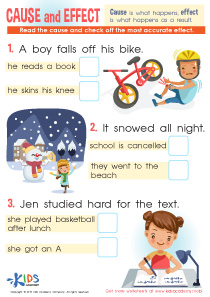Comprehension skills Normal Reading Non-Fiction Worksheets for Ages 3-8
5 filtered results
-
From - To
Enhance your child’s reading journey with our Comprehension Skills Normal Reading Non-Fiction Worksheets, designed specifically for ages 3-8. These engaging worksheets foster essential comprehension abilities, helping young learners grasp key ideas, details, and core concepts found in non-fiction texts. Tailored to develop critical thinking and analytical skills, each worksheet provides a fun way to explore various topics, encouraging curiosity and a love for learning. With age-appropriate language and interactive activities, children will enjoy mastering comprehension skills while building a strong foundation for future reading success. Explore our collection now and support your child’s educational growth effectively!
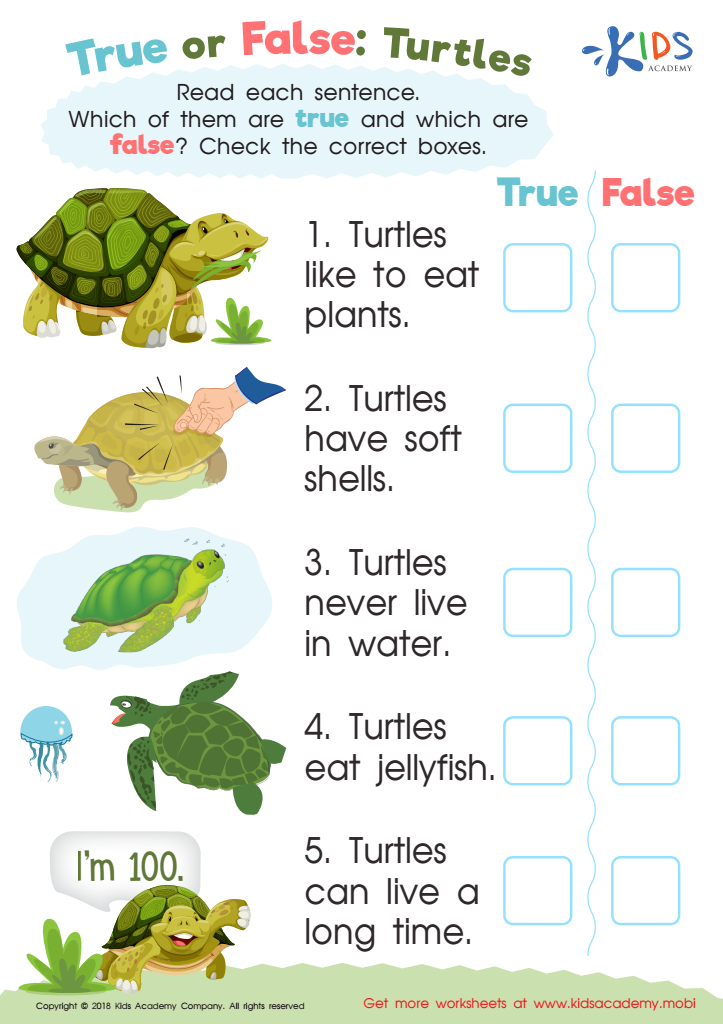

True or False: Turtles Worksheet


Benjamin Franklin Worksheet
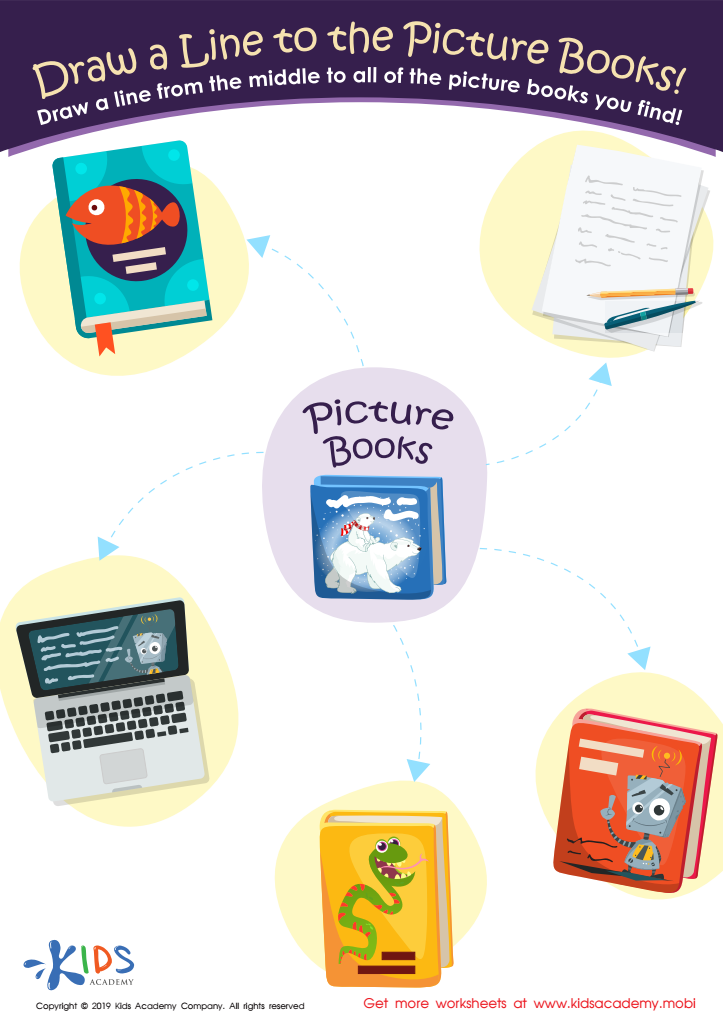

Draw a Line to the Picture Books Worksheet
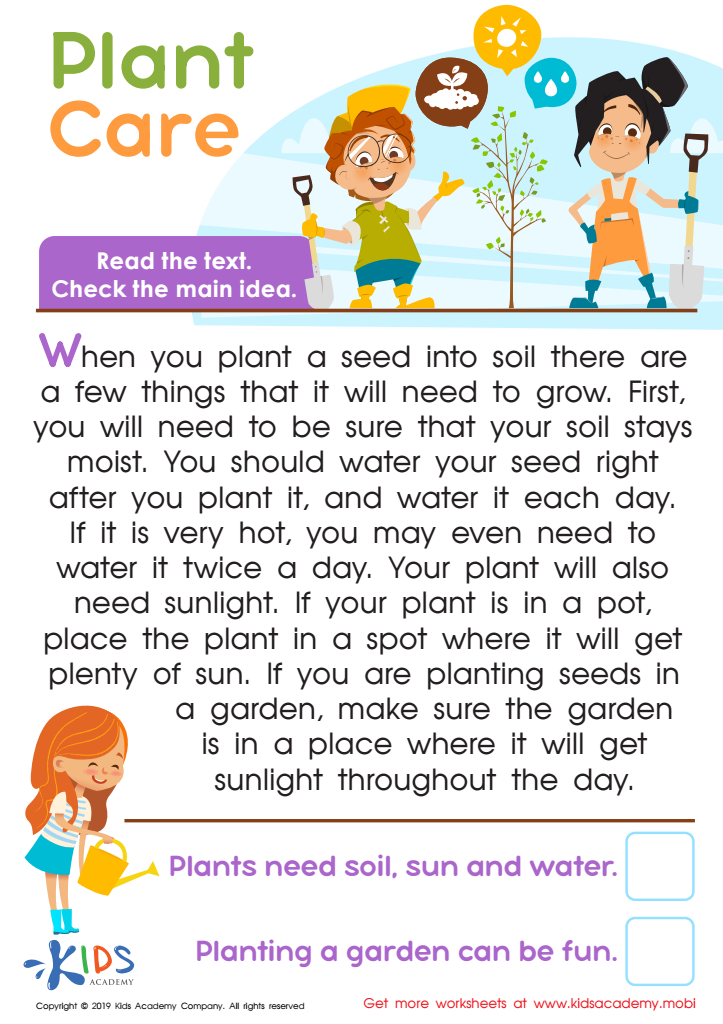

Plant Care Worksheet
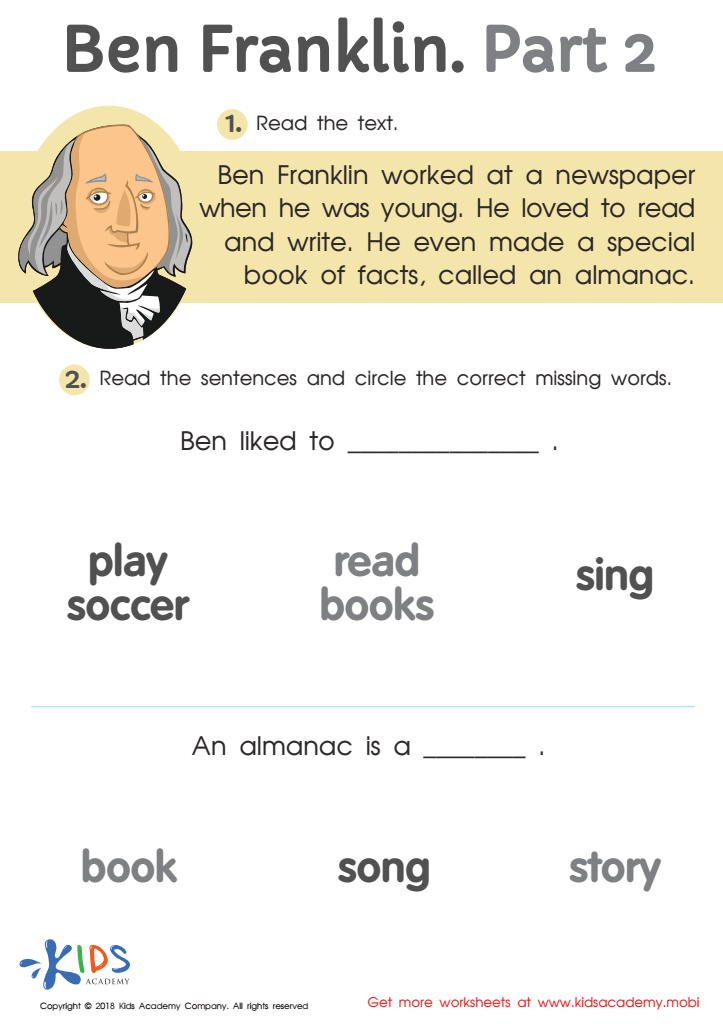

Ben Franklin Part 2 Worksheet
Comprehension skills in reading non-fiction are crucial for children aged 3-8, as they lay the foundation for lifelong learning and critical thinking. At this developmental stage, children are naturally curious about the world around them, and non-fiction texts, which include information about animals, science, history, and more, align perfectly with their interests. Enhanced comprehension skills enable children to not only understand the content but also to analyze and connect ideas, fostering a deeper understanding of complex concepts.
Parents and teachers should prioritize these comprehension skills because they significantly impact a child's ability to navigate information in an increasingly information-rich world. As children engage with non-fiction books, they learn to ask questions, seek evidence, and form reasoned conclusions; skills vital for academic success and informed decision-making in everyday life.
Furthermore, strong comprehension proficiency boosts motivation and encourages a love for reading. When children can make sense of what they read, they are more likely to engage in independent reading and learning projects, thus enhancing their vocabulary and knowledge base. Investing in early comprehension skills not only benefits academic progress but also equips young learners to become critical thinkers and informed citizens.
 Assign to My Students
Assign to My Students








